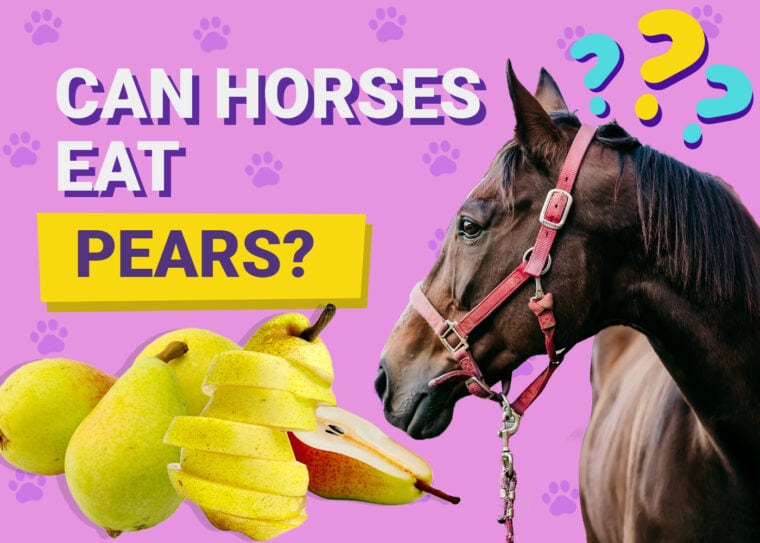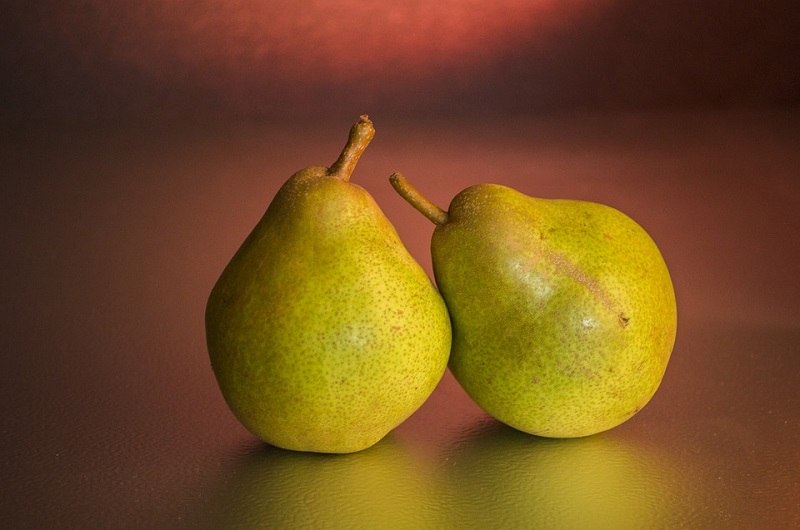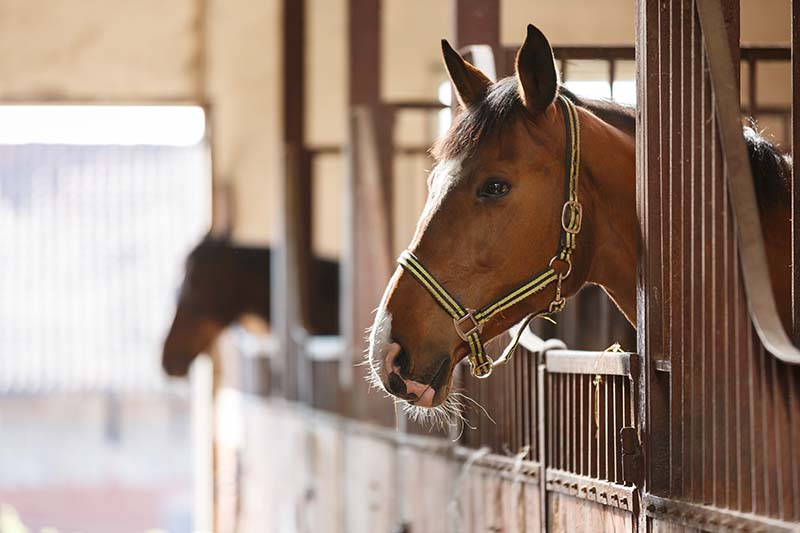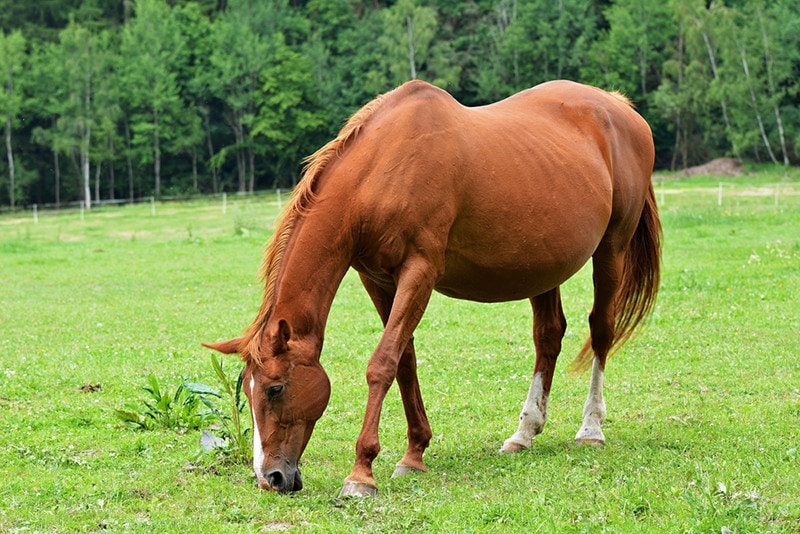
Pears are a delicious snack that are loved by people around the globe. Next time you have an extra pear or two, feel free to let your horse munch on it as well. Pears are completely safe for horses to eat. Plus, horses love their naturally sweet flavor and crisp skin.
To find out more about an equine diet with pears, keep reading. In this article, we explain how to feed pears to your horse in a safe manner, the nutritional benefits of pears, foods to avoid feeding your horse, and more.
Can Horses Eat Pears? Yes!
Most veterinarians and equine nutritionists agree that pears are completely safe to feed your horse. The best pears to feed your horse should be very ripe, allowing the fruit to be sweet on the inside yet crunchy on the outside. Not only are pears safe for horses to eat, but they are also very healthy. This fruit is a natural high source of fiber and a number of other nutrients that are necessary for a healthy horse. As a result, pears are considered a well-balanced fruit for just about any horse.
To make it even better, your horse is likely to love this sweet treat. Because of their sweet flavor and crispy crunch, horses cannot seem to get enough of pears. In other words, pears are the perfect treat to feed your horse if you are looking for a yummy yet nutritional snack.

Moderation Is Key
Of course, you need to moderate how many pears you feed your horse. Just as with any other type of food, moderation is key. Feeding your horse too many pears can disrupt their digestive tract, cause them to gain weight, and discourage them from eating other healthy foods.
Most veterinarians recommend offering your horse no more than 1 to 2 pounds of fruit every day. This includes pears, as well as other types of horse-friendly fruit. Giving your horse less than this portion of fruit is completely safe, but do not feed them more.
Potential Side Effects
Pears are generally safe to feed any horse. So long as you feed them a healthy number of pears, you should not expect any side effects. However, feeding your horse too many pears or rapidly introducing pears to their diet can cause some minor issues.
For example, feeding your horse a lot of pears at one time when they have never had it before can slightly disrupt their stomach at first. Because their stomach is not adjusted to the pear’s components yet, they may experience a little bit of indigestion or gas. You can alleviate this potential side effect by introducing pears slowly at first.
Another potential side effect of feeding your horse pears is rather ripe manure. This is not a negative side effect. In other words, it does not show any health concerns. As the person who cleans up their manure, however, expect the manure to have a much riper smell.
Feeding your horse too many pears can lead to side effects such as obesity or lack of appetite. To avoid this side effect, simply follow the recommended quantity we listed above to ensure you feed your horse a healthy number of pears and fruit.

Pear Nutritional Facts
There are over 100 types of pears grown worldwide. Despite the variety among this type of fruit, most pears have high amounts of fiber and low amounts of protein. These are both great features that all horses need. Not to mention, pears are packed full of needed nutrients, such as vitamin C, vitamin K, copper, potassium, niacin, proto vitamin A, and antioxidants.
These ingredients are beneficial to your horse for a number of reasons. Most importantly, they improve your horse’s digestive health, heart health, and issues related to inflammation. Of course, talk to your veterinarian if your horse has any specific health needs.
Improves Digestive Health
Because of the high amount of fiber, pears are great for digestive health. Feeding your horse pears can help regulate their bowel movements and feed the healthy bacteria found in their gut. More healthy gut bacteria results in improved immunity, better aging, and less constipation.
Improves Heart Health
Pears also have quite a few antioxidants, which improves heart health. For example, pear includes procyanidin and quercetin, both of which are antioxidants that benefit the heart by decreasing inflammation and increasing good cholesterol.
Anti-inflammatory
Pears help fight inflammation because of their high flavonoid antioxidant content. These antioxidants decrease inflammation, which reduces heart disease, obesity, and a number of other negative health effects found in horses.

Foods to Avoid
The number one food you should avoid feeding your horse are plants within the nightshade family. This includes potatoes, tomatoes, and peppers. Nightshades are considered one of the most naturally toxic plants to cattle, horses, and other livestock.
What makes nightshades so dangerous for horses is their high amount of solanine. Solanine is a toxin that is dangerous to humans and horses alike, though humans can tolerate it much better. Potatoes should especially be avoided because of how much solanine is found in them, especially in their raw form.
You should also avoid feeding horses bread and other high-carbohydrate foods. Most high-carbohydrate vegetables are within the nightshade family. Foods with high carbohydrates are bad for the horse because it can make them obese very quickly.
Another food you should avoid feeding your horse is animal products, such as dairy and meet. The horse’s digestive tract is not designed to handle animal products.
Conclusion
Next time you are looking for a nutritional yet yummy snack your horse will love, toss them a pear. Pears are incredibly nutritious and beneficial for horses, and their sweet flavor makes them a hit among the equine species. Just make sure to feed them pears in moderation so that they can have a healthy weight and well-balanced diet.
Related reads:








